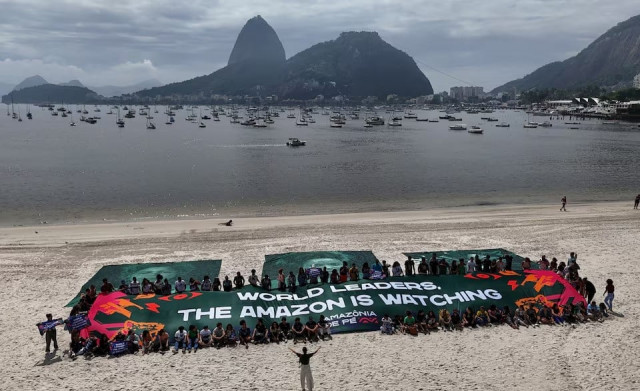G20 strikes fragile climate deal under global tensions
Guterres urges G20 economies to demonstrate leadership by tackling global emissions and addressing finance shortfalls

Diplomatic disputes over global warming dominated discussions at the G20 summit in Brazil this week. Reports suggest the 20 largest economies reached a delicate consensus on climate finance, a goal that had previously proved elusive during UN talks in Azerbaijan.
The summit in Rio de Janeiro, which began on Sunday, brings together heads of state to address global issues such as poverty, hunger, and institutional reform. However, the agenda has also been overshadowed by rising violence in Ukraine following a deadly Russian airstrike.
The parallel UN COP29 climate talks in Baku, Azerbaijan, aim to set a target for mobilising significant climate finance. Meanwhile, the G20 nations — representing 85% of the global economy and the majority of emissions — are seen as holding the financial keys to achieving these goals.
UN Secretary General António Guterres emphasised the G20’s pivotal role, stating that they account for 80% of global emissions. Speaking in Rio, he urged leaders to set an example by tackling climate change and expressed concern over the progress of COP29.
Similarly, UN climate chief Simon Stiell sent a letter urging G20 leaders to act decisively on climate finance by increasing grants for developing nations and reforming multilateral development banks.
Disagreements that have stalled COP29 talks also surfaced during G20 negotiations. At COP29, discussions have centred on setting a new target for climate financing from developed nations, multilateral banks, and the private sector to aid developing countries. Economists argue this figure must reach at least $1 trillion.
However, wealthier nations, particularly in Europe, insist that wealthier developing nations, including China and oil-rich Middle Eastern countries, should also contribute. This issue caused friction in Rio, with European countries pushing for expanded contributors and nations like Brazil resisting.
A compromise text was eventually agreed upon, allowing voluntary contributions from developing countries without imposing formal obligations.
This tentative agreement comes as President-elect Donald Trump’s return to power threatens to destabilise global climate efforts. Trump is reportedly planning to withdraw the US from the Paris Agreement and undo climate legislation enacted by President Joe Biden.
Biden, on his way to Rio, visited the Amazon rainforest, highlighting its role in combating climate change.
The outcomes of both COP29 and next year’s COP30 in Brazil hinge on reaching an ambitious deal on climate finance.
A key element of COP30 will be "Mission 1.5," which aims to keep the Paris Agreement goal of limiting warming to 1.5°C alive. Current national commitments, however, are projected to lead to a 2.6°C rise.
Developing countries insist they can only enhance their emissions reduction targets if wealthier nations, responsible for the majority of historic emissions, shoulder the financial burden.
Bahamas Prime Minister Philip Davis underscored this at COP29, asserting that achieving the 1.5°C target is possible only through a large-scale, G20-led effort to drastically cut greenhouse gas emissions.



















COMMENTS
Comments are moderated and generally will be posted if they are on-topic and not abusive.
For more information, please see our Comments FAQ